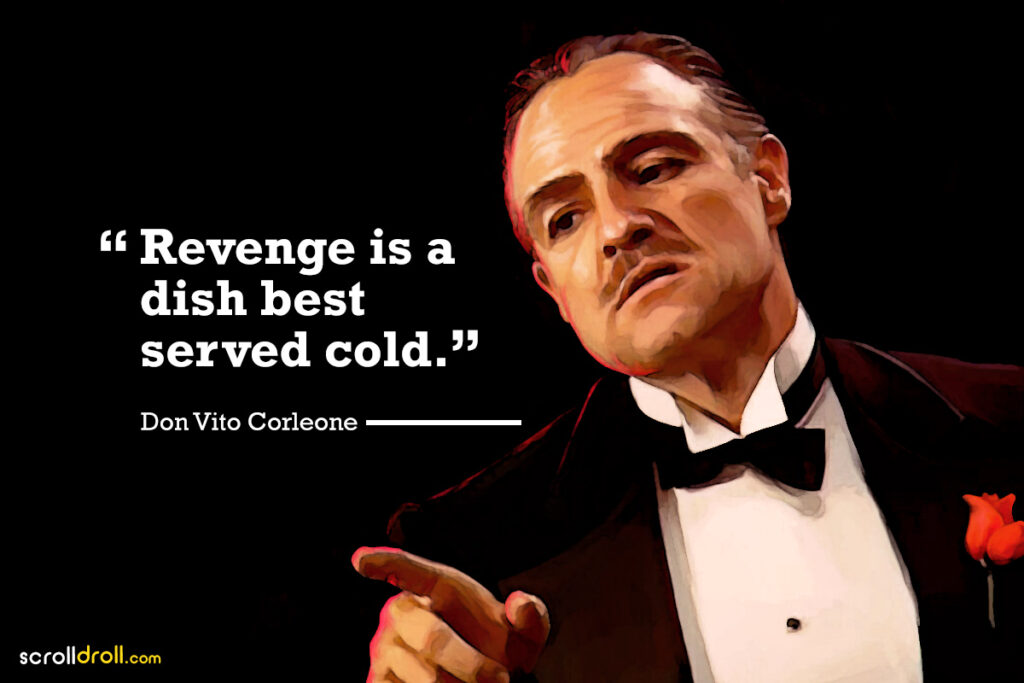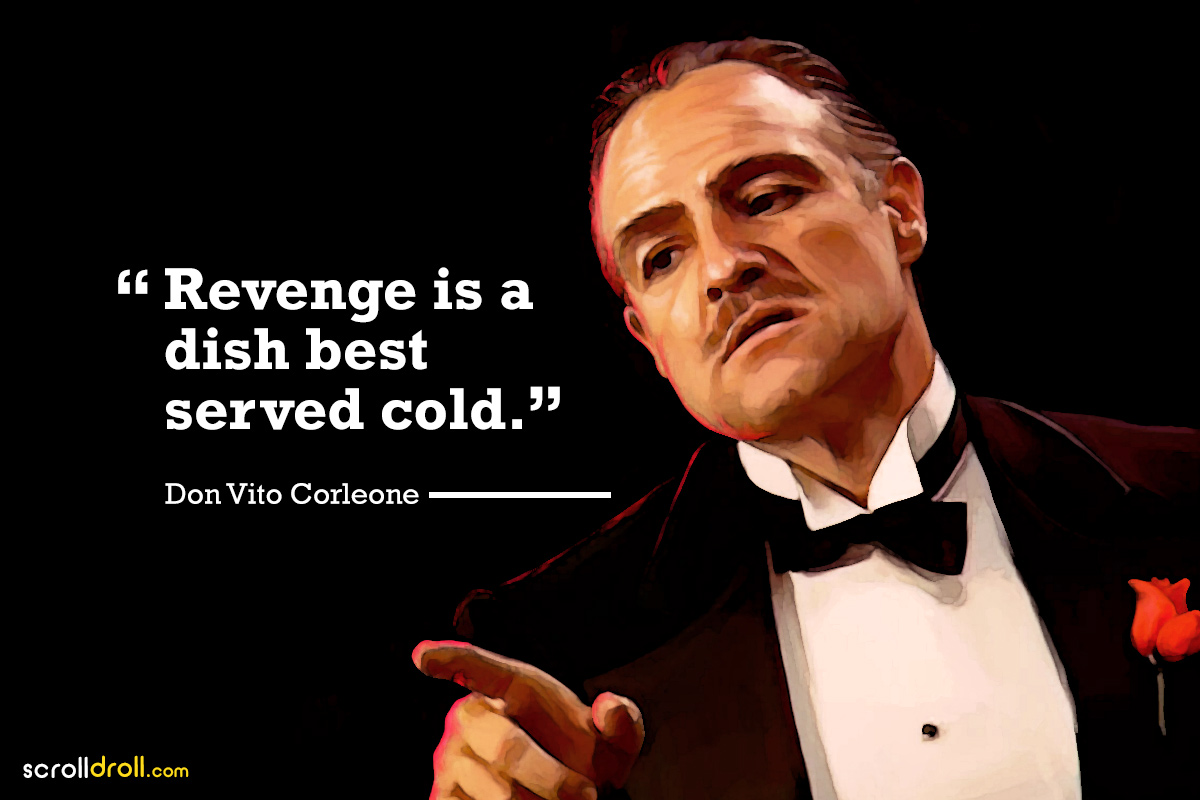
The Unforgettable Characters of The Godfather: A Deep Dive
Francis Ford Coppola’s The Godfather is more than just a film; it’s a cinematic masterpiece, a complex tapestry woven with themes of family, loyalty, and power. But what truly elevates it to legendary status are its unforgettable characters. These individuals, each meticulously crafted and brought to life by stellar performances, resonate with audiences even decades after the film’s release. This article delves into the most iconic Godfather characters, exploring their motivations, flaws, and enduring impact on popular culture.
The Corleone Family: A Dynasty Defined
Vito Corleone (Don Corleone)
Marlon Brando’s portrayal of Vito Corleone, the patriarch of the Corleone family, is arguably one of the greatest performances in cinematic history. He embodies quiet power, strategic thinking, and a fierce devotion to his family. While involved in organized crime, Vito operates by a strict code of honor, refusing to deal in drugs and prioritizing the well-being of his loved ones. His iconic lines and mannerisms have been endlessly imitated, solidifying his place as a cultural icon. Vito’s journey from a young immigrant to the head of a powerful crime family is a central theme in the film.
Michael Corleone
Al Pacino’s Michael Corleone undergoes a dramatic transformation throughout the trilogy. Initially reluctant to join the family business, Michael is drawn in after an assassination attempt on his father. He evolves from a decorated war hero into a ruthless and calculating Don, willing to do whatever it takes to protect his family’s interests. His descent into darkness is a tragic arc, showcasing the corrupting influence of power. Michael’s strategic mind and cold demeanor make him a formidable leader, but also isolate him from those he loves. The character of Michael Corleone represents the loss of innocence and the heavy burden of leadership.
Sonny Corleone
James Caan’s Sonny Corleone is the hot-headed and impulsive eldest son of Vito. He is known for his fiery temper and willingness to resort to violence. Sonny’s brashness often clashes with his father’s more measured approach, leading to disagreements and ultimately contributing to his tragic demise. Sonny’s death is a pivotal moment in the film, triggering a chain of events that shapes the future of the Corleone family. His character embodies the recklessness and passion that can both empower and destroy.
Fredo Corleone
John Cazale’s Fredo Corleone is the weak and insecure middle son. Often overlooked and underestimated, Fredo struggles to find his place within the family. His insecurities and desire for respect lead him to make poor decisions, ultimately betraying his own brother. Fredo’s character serves as a cautionary tale about the dangers of envy and the consequences of weakness. His tragic fate highlights the harsh realities of the Corleone family’s world.
Tom Hagen
Robert Duvall’s Tom Hagen is the Corleone family’s consigliere, an adopted member who acts as their lawyer and advisor. He is intelligent, loyal, and level-headed, providing a crucial voice of reason amidst the family’s turbulent affairs. Tom’s outsider perspective allows him to offer objective advice, navigating the complex legal and political landscape that surrounds the Corleones. He is an indispensable member of the family, providing stability and guidance during times of crisis. Tom Hagen is a key figure in maintaining the Corleone family’s power and influence.
Connie Corleone
Talia Shire’s Connie Corleone is the only daughter of Vito. Her life is marked by emotional turmoil and abusive relationships. Connie’s character represents the vulnerability and suffering that can exist even within a powerful family. She struggles to find her place in the Corleone world, often feeling neglected and unappreciated. Her story highlights the complex dynamics and the personal cost of being part of a crime family.
Key Supporting Characters: Allies and Enemies
Sollozzo
Al Lettieri’s Sollozzo, also known as “The Turk”, is a rival drug trafficker who seeks Vito Corleone’s support for his heroin business. His refusal by Vito leads to the assassination attempt that propels Michael into the family business. Sollozzo represents the changing landscape of organized crime, moving away from traditional gambling and extortion towards the more lucrative but dangerous world of narcotics. His character is a catalyst for the conflict that drives the plot forward.
Captain McCluskey
Sterling Hayden’s Captain McCluskey is a corrupt police officer who is on Sollozzo’s payroll. His involvement in the Corleone family’s affairs escalates the conflict and forces Michael to make a drastic decision. McCluskey represents the corruption and abuse of power that can permeate law enforcement. His death at the hands of Michael marks a turning point, solidifying Michael’s commitment to the criminal lifestyle.
Kay Adams
Diane Keaton’s Kay Adams is Michael Corleone’s girlfriend and later his wife. She represents the outside world, initially unaware of the true nature of the Corleone family. As Michael becomes more deeply involved in the family business, Kay struggles to reconcile her love for him with the violence and corruption that surrounds him. Kay’s character serves as a moral compass, questioning Michael’s choices and highlighting the human cost of his actions. She is an outsider looking in, representing the hope for a normal life that Michael ultimately sacrifices.
Apollonia Vitelli
Simonetta Stefanelli’s Apollonia Vitelli is Michael’s first wife, whom he marries while in hiding in Sicily. Their brief but passionate romance is tragically cut short when Apollonia is killed in a car bombing intended for Michael. Apollonia represents a brief moment of happiness and normalcy in Michael’s life before he is fully consumed by the darkness of the Corleone family. Her death further hardens Michael and reinforces his commitment to revenge.
Hyman Roth
Lee Strasberg’s Hyman Roth is a powerful and influential Jewish mobster who is a contemporary of Vito Corleone. He is a shrewd and calculating businessman who plays a key role in Michael’s expansion into Las Vegas and Cuba. Roth represents the old guard of organized crime, a generation of gangsters who built their empires through cunning and ruthlessness. His betrayal of Michael sets the stage for a complex and deadly power struggle. The character of Hyman Roth is a complex and compelling antagonist for Michael Corleone.
The Enduring Legacy of The Godfather Characters
The Godfather characters continue to fascinate audiences because they are complex, flawed, and ultimately human. They grapple with universal themes of love, loyalty, ambition, and betrayal. Their stories resonate with viewers because they reflect the complexities of human nature and the choices we make in the face of difficult circumstances. The meticulous character development and the outstanding performances of the actors have cemented these Godfather characters in cinematic history.
The impact of these Godfather characters extends beyond the film itself. They have influenced countless works of art, literature, and popular culture. Their iconic lines and mannerisms have become ingrained in our collective consciousness. The very phrase “Godfather characters” conjures up images of power, respect, and the dark underbelly of American society. Their influence is undeniable and their legacy will continue to endure for generations to come.
The careful portrayal of family dynamics, the exploration of moral ambiguities, and the sheer power of the performances all contribute to the enduring appeal of these figures. From the stoic Don Vito Corleone to the tragically flawed Fredo, each Godfather character offers a unique perspective on the themes of power, loyalty, and the corrupting influence of ambition. Understanding these characters is key to understanding the film’s enduring legacy.
In conclusion, the Godfather characters are not just figures on a screen; they are archetypes that represent the best and worst of human nature. Their stories continue to resonate with audiences, prompting us to reflect on our own values and the choices we make in our lives. The Godfather characters are a testament to the power of storytelling and the enduring impact of cinematic art. [See also: The Making of The Godfather: Behind the Scenes] [See also: The Godfather’s Influence on Modern Cinema]
The exploration of these Godfather characters also offers a lens through which we can examine the American Dream and its potential pitfalls. The Corleone family’s pursuit of wealth and power, while ultimately successful, comes at a tremendous cost. The sacrifices they make, the betrayals they endure, and the violence they perpetrate raise questions about the true meaning of success and the price of ambition. The Godfather characters remain relevant because they force us to confront these uncomfortable truths.
The performances in The Godfather are iconic, and a large part of that comes from the depth and complexity of the Godfather characters themselves. They are not simply good or evil; they are a blend of both, driven by complex motivations and facing difficult choices. This nuance is what makes them so compelling and why they continue to be studied and analyzed by film scholars and fans alike. The Godfather characters are a masterclass in character development, showcasing the power of nuanced storytelling and exceptional acting.
The Godfather characters and their interactions with each other form the very core of the narrative. The relationships between the Corleone brothers, the dynamics between Vito and Michael, and the external conflicts with rival families all contribute to the film’s dramatic tension and emotional depth. The study of these relationships provides valuable insights into the themes of family, loyalty, and betrayal that are central to the film’s message. Understanding these Godfather characters and their connections is essential for appreciating the film’s overall impact.
The legacy of The Godfather extends far beyond its cinematic achievements. The Godfather characters have become cultural shorthand for power, influence, and the dark side of the American Dream. Their quotes, their images, and their stories continue to be referenced and reinterpreted in countless works of art, literature, and popular culture. The enduring appeal of these Godfather characters speaks to the film’s profound impact on our collective imagination and its lasting contribution to the cultural landscape. The Godfather characters continue to be analyzed and celebrated.

